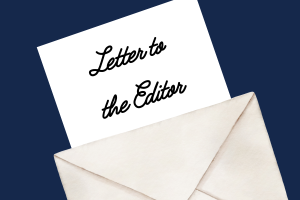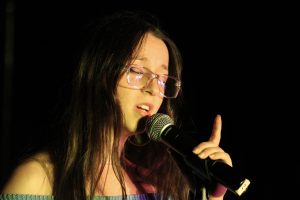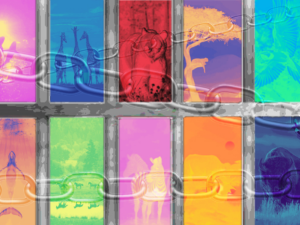From All Corners: International Opinion – Russian Democracy: Yea or Nay?
October 11, 2012
Using the words “Russia” and “democracy” in a sentence is like going to Fenway Park and looking for a fair price on beer. It’s not there. To recap briefly Russian history in one sentence, there were the Middle Ages, a series of Czars (1574-1917,) Lenin for about ten minutes, then Stalin (1927-1953) and several other Soviet Leaders (dictators) until the breakup in the early 1990s.
Admittedly, the early 90’s saw many multi-party elections, breaking Russia’s previous record of zero such democratic practices, and indeed Boris Yeltsin, the predecessor to the current head of state Vladimir Putin, enjoyed 57 percent of the popular vote in the 1991 election that put him in office. And for eight years, with some contention over Yeltsin’s reelection in 1996, democracy in Russia looked feasible.
Then, in 1999, after surviving the second impeachment attempt on his presidency, Yeltsin fired his entire cabinet (the fourth time in eight years he had done this) as well as his prime minister. He replaced the PM with Vladimir Putin, then named Putin as his successor, and five months later, aired his official resignation on national Russian television (possibly the first bad news about Yeltsin’s administration state television had ever aired.) Vladimir Putin, after a few weeks of maneuvering, took the helm, and has more-or-less been in charge of Russia ever since.
To give you an idea of Russia’s current press situation, publishing the last two paragraphs in Russia would more-or-less guarantee me a visit from a few overweight thugs armed with crowbars and low IQs. Or, depending on Putin’s mood that week, a free ride to jail where I could sit next to the likes of Pussy Riot members Nadezhda Tolokonnikova and Maria Alyokhina, who made the news recently for their public protests and arrests.
Or, if I was particularly brutal (or honest) about Putin’s “democracy,” I could end up like Gadzhimurat Kamalov, a journalist shot dead in a drive-by shooting outside his office last December. Regardless, democracy as we know it in the west, where President Obama will defend my right to slander him outrageously, in comparison with Russia, puts them far from being free.
However, recent Russian history has revealed an interesting characteristic about Russian society. As a whole, they seem to be largely uninterested in politics. Putin, despite his fairly blatant transgressions against the standard democratic method, has enjoyed the sort of approval ratings most American presidents might sell limbs for, in the range of 60-to-75 percent, which Putin had in the last five years.
As David Remnick discusses in his recent article “The Civil Archipelago,” this is explainable in part by what he considers a formerly apathetic public interest. While this may or may not have been the case in the past, the mounting demonstrations that have made headlines for the past months in Moscow are testament to the fact that the political climate is heading for a change. Whether this will mean more democratic policy, or indeed whether democracy is really what Russia needs remains to be seen. But Putin’s plummeting approval ratings mean one thing for sure, if democracy in Russia ever had a chance that the likes of Boris Yeltsin couldn’t squander with loud threats and intimidation, that time is now.
_______________________________________________________________________
Clifford Levy’s article, “Russia’s Knockoff Democracy” published in the New York Times this past week, paints an accurate picture of the kind of political society that was being played out in 2007’s Russia. A picture that was more autocratic than democratic. Levy makes the case that the policies the Russian government implemented were contradictory to democratic principles and they need to be called out on it.
The efforts which Russia’s ruling elite use in showing the Western world they are implementing democracy contain elements contrasting Western countries views and application of democratic values. Levy presents Putin’s deception that he is “broken with the old ways and was progressive as any leader in the West,” by revealing the fraud of their so-called democracy installation.
For one thing, local elections should always provide the service of representation in any civil society. Levy quotes Putin admitting that democracy “takes time and the right groundwork and conditions.” However, by eliminating local elections in 2004, Putin removed the groundwork he was referring to when he was defending the clearly pseudo democracy he helped institute. Levy revisits this issue in 2011, where he accounts for Gorbachev’s criticism of Putin’s policies in his article, “Russian Democracy Has Disappeared.” Gorbachev’s exposure of Putin’s autocracy is seen when he points out that “Democracy begins with elections… elections, accountability, and turnover.”
Another policy that negates democratic standards is Putin taking part in the nomination of a Presidential candidate. Levy describes how Putin is presented with a nominee whom the public have had no say in regarding the decision that led to his selection. By Putin misrepresenting the candidate as one who “reflected the views of a broad variety of Russians,” he attempts to portray a democratic process that doesn’t exist.
Even when elections actually take place in Russia, there is intimidation of opponents, corruption, and voter fraud. Jackson Diehl, in his article, “Autocratic status quo crumbling in Russia, China,” describes how Russia and China face challenges in maintaining their autocracy due to a rising, more educated middle class. Diehl illustrates the fact that “in Moscow crowds of tens of thousands have turned out to denounce fraud in December’s parliamentary elections,” is a good example to show the true nature of the “knock off democracy.” True democracy requires free and legitimate elections, coupled with assurance that the rights of all voters are protected.
A free election campaign involves freedom of speech, freedom of assembly, and most of all, safeguard of basic human rights. All of these components are absent in an autocratically run election. Putin’s active development toward a less democratic strategy of rule than what he depicts, speaks to the history of Russian autocracy, which it has failed to break free of.







The Suffolk Journal • Oct 12, 2012 at 3:30 pm
Our writers discuss Putin’s autocratic regime: http://t.co/A0Z0tjPg